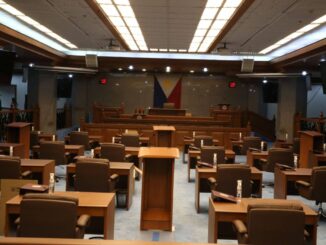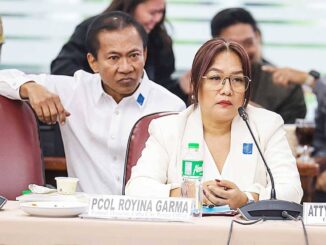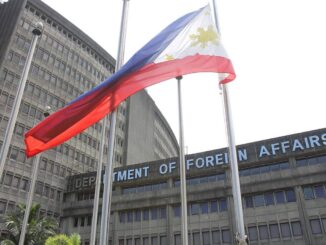
MANILA, Philippines — “Nabudol tayo (We’ve been had)!”
This was how a member of the quad committee of the House of Representatives described the alleged “cover-up” of the high-level drug activities of former president Rodrigo Duterte, through his deadly war on drugs.
“Ladies and gentlemen, the quad comm has started to uncover a grand criminal enterprise and it would seem that at the center of it is former president Duterte,” Antipolo Rep. Romeo Acop said at last Thursday’s quad comm hearing on extrajudicial killings during the Duterte administration.
“Napakasakit po nito dahil pawang tayo ay nabudol (This really hurt because we had been fooled),” Acop said. “We will leave no stone unturned.”
The committee will commence its investigation in 2025.
The hearing last Thursday was the quad comm’s 13th and last for the year. Quad comm is composed of the committees on dangerous drugs, public order and safety, human rights and public accounts.
He said that based on evidence gathered by the committee during its hearings, Duterte’s “war on drugs” was only a cover for the former president’s “grand criminal enterprise” involving ranking government officials.
Information gathered by quad comm indicated that Duterte and his inner circle actually profited from the drug trade they had publicly vowed to eliminate, he said.
“Our job here with the quad comm is difficult. Nobody wanted to cross a popular former president. But like the president, we are elected by the people,” Acop, a former police officer, said.
In his presentation, Acop noted that the Duterte administration’s most trusted officials wielded both the “purse and the sword” of the Republic, and instead of serving the people, they weaponized these powers for personal and political gain.
“It is most unfortunate, however, that the sword was used to slit, stab and slash the very people it swore to protect – We the People – and the purse was used not to benefit the Republic, but to line the pockets of the few. Nilunod nila ang bayan natin ng droga, at kumita dahil dito (They drowned the people with drugs and earned from it),” Acop said.
Acop highlighted the testimony of former police intelligence officer Eduardo Acierto, who categorically named Duterte, Sen. Ronald dela Rosa and Sen. Bong Go as “integral personalities in protecting the illegal drugs network in the Philippines.”
“Worse, they served as key figures in ensuring that large volumes of illegal drugs slip right through our borders,” he said.
He lamented that Acierto is now in hiding due to threats on his life from Duterte himself.
‘Tale of 2 shipments’
Acop opened his presentation by recounting two major drug smuggling cases in 2017 and 2018, which he called the “Tale of Two Shipments.”
These two shipments involved P6.4 billion and P3.4 billion worth of shabu smuggled through the Manila International Container Port (MICP).
In their testimonies, key witnesses – businessman Mark Taguba and former Customs intelligence officer Jimmy Guban – detailed how Duterte’s son, Davao City Rep. Paolo Duterte, son-in-law Manases Carpio and his former economic adviser Michael Yang allegedly orchestrated these shipments.
Taguba and Guban testified that shipments bypassed inspections through the tara system – a deeply entrenched bribery scheme within the Bureau of Customs (BOC) where millions of pesos in grease money facilitated the entry of drugs.
“How do they pull this off? It’s a crack in our system – a crack in the Bureau of Customs,” said Acop.
“The tara system – grease money – allowed shipments of dangerous drugs to pass through without X-rays or inspections,” he added.
Acierto, through video conferencing, earlier presented before the quad comm detailed reports linking Yang to an organized drug trafficking network, alongside his business partners Allan Lim (also known as Lin Weixiong) and Johnson Co.
Yang’s operations reportedly ranged from facilitating drug importation to overseeing distribution and money laundering.
Acierto’s matrix depicted an “end-to-end” drug enterprise involving precursor shipments, manufacturing and distribution across the Philippines.
Testimonies also revealed Yang’s connection to the 2004 Dumoy laboratory raid in Davao City, where over 100 kilos of high-grade shabu worth P300 million – the largest drug bust of its time – were uncovered.
Acierto’s report also mentioned the involvement of former Philippine Drug Enforcement Agency chiefs Wilkins Villanueva and Aaron Aquino in the drug trade.
Acop also cited resource persons’ confirming a reward system for drug kills. “Every kill was compensated, and the bigger the ‘catch,’ the higher the pay,” he pointed out.





Be the first to comment